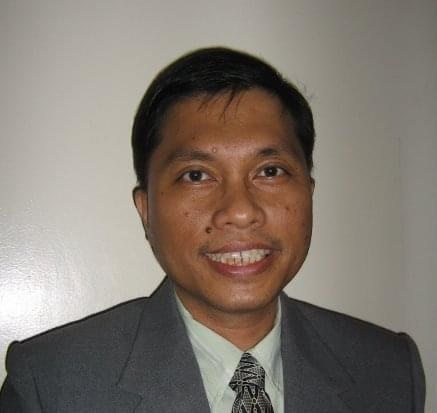OBLIQUE OBSERVATIONS
By Atty. Gilberto Lauengco, J.D.
Neurodivergence in PH: The fight for awareness, inclusivity
Share
“We should celebrate neurodiversity – the world would be poorer and life duller if we were all the same.” – Neil Milliken
“In a culture that believes great minds think alike, people whose brains work differently are often ignored or excluded.” – unknown author
This week (March 13 to 19,2023) is Neurodiversity Celebration Week. Neurodiversity week is a worldwide initiative and celebration that seeks to raise awareness about the misconceptions and stereotypes of neurodivergence.
Neurodivergence is a nonmedical term that describes people whose brains develop or work differently for some reason. This means the person has different strengths and struggles from people whose brains develop or work more “typically”. Classical definitions of neurodivergence include diagnoses of autism, ADHD, dyslexia and other forms of learning disabilities.
The activities of this week are meant to transform how neurodivergent individuals are treated or supported. Proponents of the neurodiversity movement believe that brain differences are normal rather than deficits and that neurodivergent people experience, interact with and interpret the world in unique ways.
It is estimated that around 15 to 20 percent of the world’s population (one out of seven individuals) exhibits some form of neurodivergence. Dyslexia is the most common type of neurodivergence with a worldwide average of 10 percent of adults. This is followed by ADHD with 4 to 5 percent and autism at 1 to 2 percent.
Statistics for neurodivergence in the Philippines are scarce because of underreporting, misdiagnosis or a general lack of sufficient programs to measure. There are, however, various estimates for autism with a high of 1 in 100 persons to a low of 1 in 500. ADHD estimates put it at an average of 1 in 20 persons. We have no specific statistics on dyslexia in our country but some estimate it also at the worldwide average of about 10 percent of the population.
Despite the foregoing statistics, it is quite unfortunate that awareness and understanding of neurodiversity in the Philippines is still very low. Unless one has a loved one who exhibits some form of neurodivergence, Filipinos rarely know much or even care about the prevalence of neurodivergence.
For autism, the average Filipino thinks that all autistic individuals are like the main characters portrayed in television shows like “Budoy” and “My Special Tatay” which focused on autism as a form of impairment and even portrayed with whimsy. Although, there was a nuanced performance of an autistic individual by one of the actors in the show “The General’s Daughter”, it was the portrayals of autism in the other two shows which stick to the minds of many Filipinos.
What is worse, however, that there are some incidences of discrimination in the Philippines against neurodivergent individuals. In December 2020 , an incident occurred in a Mactan resort that still makes many parents of autistic children very angry to this day. In that resort, a 6-year-old child with autism was squealing in delight when the staff allegedly told her to stop her child from making noises. After complaining about the incident, the resort’s resident manager in a written reply accused the mother of “lying about her son’s condition” and stated that “uncontrollable shouting is not a symptom of autism”. He said that he googled the symptoms of autism and concluded that this was a case of “lack of discipline”. The said individual received a plethora of angry comments from parents of autistic children who even crossed political fences to jointly address the issue. The manager issued what many felt was a non-apology. Advocates for neurodivergence awareness still cite this incident when discussing about the need for more concrete actions to prevent discrimination.
Insofar as government policies are concerned, most government programs and initiatives are centered on physical disabilities. There is a need to increase access to education services for neurodivergent individuals.
Republic Act 7277 or the Magna Carta for Disabled Persons in the Philippines does not even specifically include autism or neurodivergence in the list of disabilities. As such, programs specifically keyed for neurodivergence are far and few in between.
Some people insist that this is just nitpicking. We beg to differ. All parents of neurodivergent individuals share a common pain. It starts on the day we are told our children are neurodivergent. It is a pain that often lingers.
It is a pain that we do not wish on anyone else. This is why we fight like this for awareness and understanding. Inclusivity has become a byword for some sectors but true inclusivity should include the neurodivergent individuals who often cannot fight for themselves.
This is my oblique observation.
Editor’s note: The opinions expressed in the foregoing article are solely the author’s and do not reflect the opinions and beliefs of the Philippine News Agency (PNA) or any other office under the Presidential Communications Office.
Comments
About the Columnist

ATTY. GILBERTO LAUENGCO, J.D. is a lawyer, educator, political strategist, government consultant, Lego enthusiast, and the director of CAER Think Tank. He is a Former Vice Chairman of MECO, Special Assistant of NFA and City Administrator among others. His broad experience has molded his unique approach to issues analysis which he calls the oblique observation.
